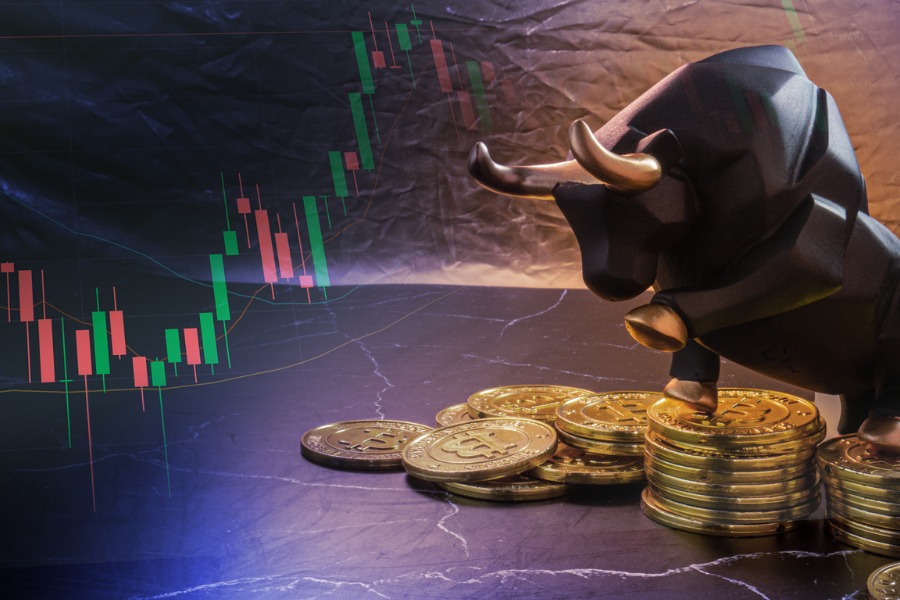

Investors appear to be shaking off market volatility and focusing on some positive fundamentals for the long term.
Two sentiment barometers this week reveal elevated levels of bullishness, although one also found increased pessimism in the past week.
The quarterly Charles Schwab Trader Sentiment Survey discovered a two-year high in optimism among its participants with nearly six in ten traders feeling it is a good time to invest and more than half saying they are better off financially compared to a year ago. Traders are also feeling confident in their investment decisions.
Inflation has slipped back from its pole position among concerns in the last quarter, while 33% of traders are expecting the Fed to cut interest rates by 50 basis points by year-end, up from the 25% who thought so in the previous quarter.
Although the survey was conducted before Nvidia released its quarterly earnings which may dampen enthusiasm for AI stocks, this remained the top focus for bullish traders (62%) with IT, energy, and health care the sectors garnering the most bullishness.
“Coming into the third quarter, traders reported higher levels of optimism about the markets and economy – and continued confidence in their own decision-making,” said James Kostulias, head of Trading Services at Charles Schwab. “While we have seen increased market volatility since fielding our Q3 survey, we’re seeing some longer-term positivity among traders, and they are in a better position than ever before to manage volatility and market risks in a nuanced way thanks to the insights, education, and professional-grade platforms and tools at their fingertips.”
Most traders said that the presidential election will have an impact on markets and almost half are derisking their portfolios.
SHORT-TERM PESSIMISM
A separate weekly survey from the American Association of Individual Investors found that pessimism had increased this week from seven days earlier regarding the short-term outlook for stocks.
While bullishness remains above its historical average of 37.5% - coming in at 51.2% this week – it has declined 0.5 percentage points week-over-week while bearishness increased 3.3 percentage points to 27.0%, still below the historical average of 31.0%.
The AAII survey also asked respondents about gold with 27% expecting further increases over the next year, 16.2% expecting stabilization around current levels, and 29.7% believing they will decrease moderately. Just 3.2% think gold prices will fall significantly in the next 12 months.

Executives from LPL Financial, Cresset Partners hired for key roles.

Geopolitical tension has been managed well by the markets.

December cut is still a possiblity.

Canada, China among nations to react to president-elect's comments.

For several years, Leech allegedly favored some clients in trade allocations, at the cost of others, amounting to $600 million, according to the Department of Justice.
Streamline your outreach with Aidentified's AI-driven solutions
This season’s market volatility: Positioning for rate relief, income growth and the AI rebound
